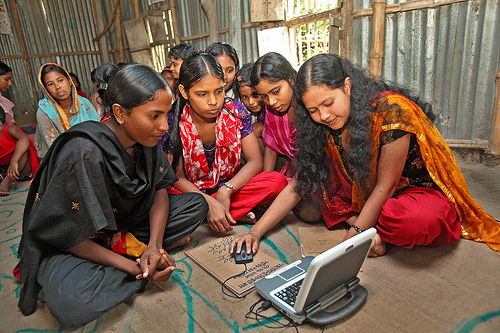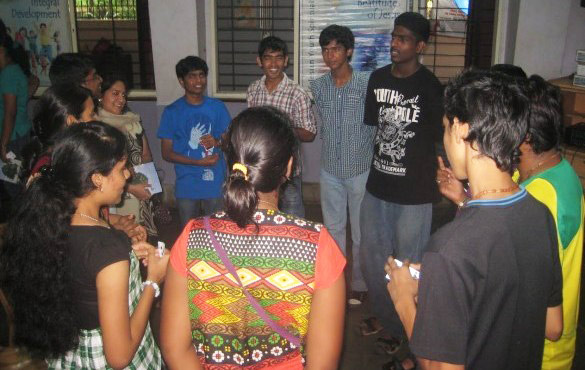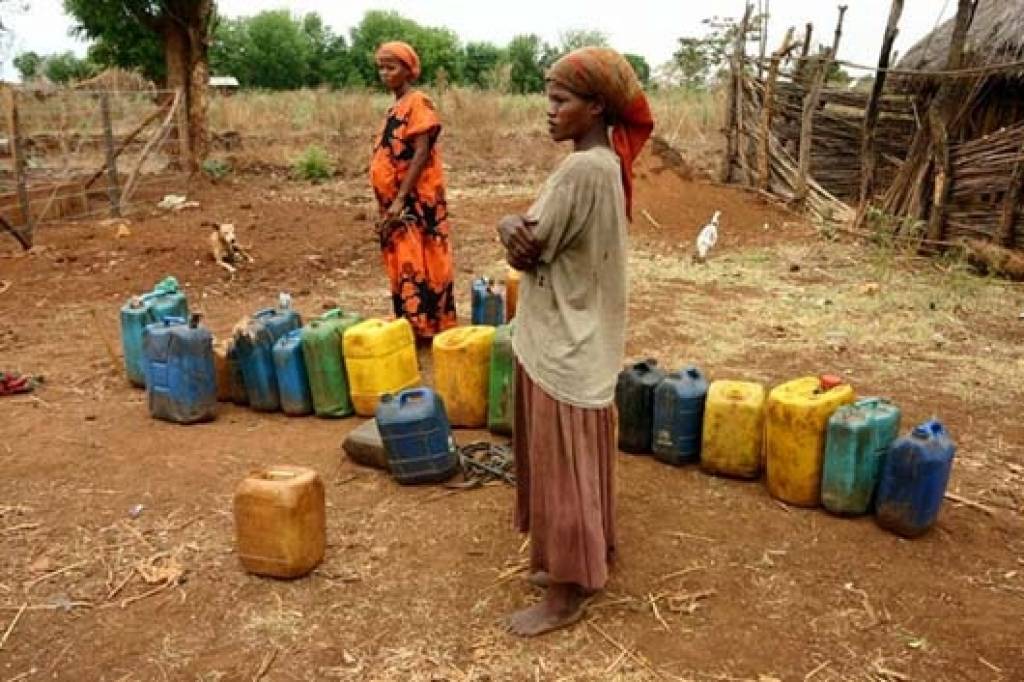UNESCO: 20 Percent of Youth in Developing Countries Fail to Complete Primary School, Lack Job Skills

(UNESCO) The 10th Education for All Global Monitoring Report, Putting Education to Work, published by UNESCO (United Nations Educational, Scientific and Cultural Organization), reveals the urgent need to invest in skills for youth. In developing countries, 200 million people aged 15 to 24 have not even completed primary school and need alternative pathways to acquire basic skills for employment and prosperity. The world’s youth population is larger than ever before; one in eight young people are unemployed and over a quarter are trapped in jobs that keep them on or below the poverty line. As the effects of the economic crisis continue to squeeze societies worldwide, the severe lack of youth skills is more damaging than ever.
Despite significant progress in some regions, few are on track to meet the six Education for All (EFA) goals set in 2000, and some are a long way behind. The report looks in depth at youth skills, one of the least analysed of the EFA Goals. It shows that acquiring a lower secondary education is a minimum today for young people to gain the foundation skills they need to find decent jobs. Yet there are 250 million children of primary school age today who cannot read or write, whether they’re in school or not, and 71 million teenagers are out of secondary school, missing out on vital skills for future employment.
Poor young populations, urban and rural, are the most in need of skills training. In urban areas, the youth population is larger than it has ever been and growing. In a fifth of countries analysed, poor, urban young people have less education than in rural areas. Over a quarter earn little more than US$1.25 a day.
The vast majority of the world’s poor and least educated live in rural areas, however. Many young farmers facing land scarcity and the effects of climate change, lack even basic skills needed to protect themselves and make ends meet. Women are the most in need. They need training in business and marketing to find opportunities beyond farm work and reduce the obligation of migrating to cities in search of a job.
“We are witnessing a young generation frustrated by the chronic mismatch between skills and work. The best answer to the economic downturn and youth unemployment is to ensure that young people acquire the basic skills and relevant training they need to enter the world of work with confidence,” said Irina Bokova, Director-General of UNESCO. “Many, and young women in particular, need to be offered alternative pathways for an education, so that they can gain the skills needed to earn a living, live in dignity and contribute to their communities and societies.”
Investing in young peoples’ skills is a smart move for countries seeking to boost their economic growth. The Report estimates that every $1 spent on a person’s education, yields US$10-US$15 in economic growth over that person’s working lifetime. Not investing in young people’s skills leaves them either adding to unemployment statistics in rich countries, or trapped in jobs earning poverty line wages in low-income countries.
There are long-term effects of ignoring youth skills in countries the world over. Drawing on OECD data, the Report estimates that 160 million adults in developed nations do not have the skills needed to apply for a job or read a newspaper.
There is a dire need to increase funding to fix this skills deficit. This year’s Education for All Global Monitoring Report calculates that, in addition to the US$16 billion needed annually to attain universal primary education by 2015, universal lower secondary school enrolment would cost US$8 billion. Programmes offering alternative pathways for skills training also need to be dramatically scaled up to reach young people who have missed out.
“There are worrying signs that aid to education may be slowing down just when children and young people need it the most,” said Pauline Rose, director of EFA Global Monitoring Report. “Governments and donors must find the money and energy to help young people most in need to acquire the skills they and their countries’ economies desperately need. The private sector is the first to benefit from a skilled workforce and must also step up its financial support.”
Reallocating aid could help fill the funding gap. US$3.1 billion of aid to post-secondary education never reaches the educational systems of developing countries as it is used to fund foreign students in donor countries. These funds could be better spent addressing the skills deficit for disadvantaged youth in poor countries. The cost of one Nepalese student’s scholarship in a developed country could give 229 students access to secondary education at home.
One of the main beneficiaries of a skilled workforce, the private sector, presently contributes the equivalent of 5% of total official aid to education. Most of that money is given by just five corporations. Private contributions do not always reflect government’s education priorities, however, and are often more closely aligned with corporate business priorities. Large amounts of funding go to tertiary education, for example, though only a minority of children make it to that stage and most still lack basic skills. Most of the IT sector’s support is channelled to the emerging economies – Brazil, India and China – rather than to developing countries most in need of assistance.
The Report makes a number of recommendations to address these problems and support skills development for young people:
- Alternative pathways to learn foundation skills must be provided for an estimated 200 million young people.
- All young people need quality training in relevant foundation skills at lower secondary school.
- Upper secondary curricula should provide a balance between vocational and technical skills, including IT, and transferable skills such as confidence and communication which are indispensable for the work place.
- Skills strategies must target the disadvantaged: particularly young women and urban and rural poor.
- $US8 billion is needed to ensure all young people attend lower secondary education. Governments as well as donors and the private sector must help fill the funding gap.
The 2012 edition of the Report follows the launch on 26 September of “Education First”, an initiative driven by U.N Secretary General Ban Ki moon who stressed the importance of rallying all stakeholders to overcome the obstacles to achieving “quality, relevant and transformative education.”
“Our shared goals are simple,” said the Secretary-General on that occasion. ‘We want all children to attend primary school and to progress to secondary school and relevant higher education that will help them to succeed in life and live as engaged and productive global citizens.”
###
Photo: UNESCO/BRAC



